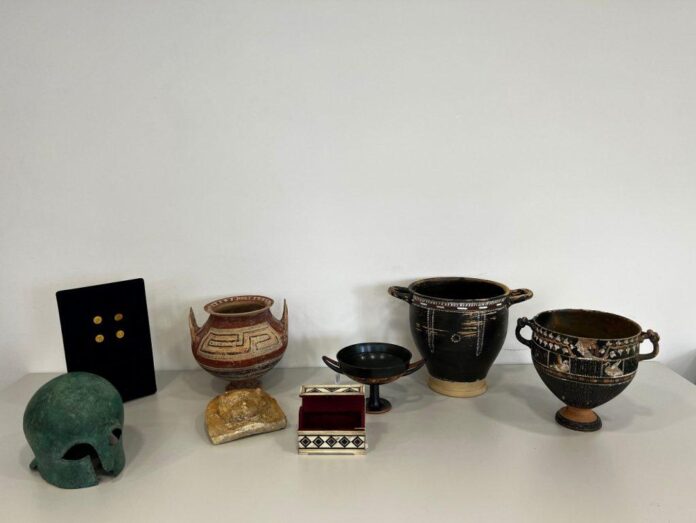The German state of Bavaria has returned 14 cultural artifacts that had been illegally exported from Italy in acts of theft or smuggling. Their recovery is the result of a joint effort by Italian and German investigative authorities.
Among the trove of was a Corinthian bronze and several ancient ceramics, including a drinking vessel from the 6th century BCE. One priceless 2,500-year-old bowl bearing motifs from Greek mythology that had been illegally exported was rescued just before hitting the block at a Munich auction house.
A particularly sumptuous 16th-century Venetian jewelry box with wood inlays and animal bone carvings originates from the renowned Embriachi workshop and was stolen from Milan’s Castello Sforzesco museum in 2006. It traveled to Germany via the U.K. and Belgium, and was eventually offered for sale before being found by Bavarian police.
Four Roman-Byzantine gold coins had also been stolen in 2009 from the National Archaeological Museum in Parma. Guido Limmer, the vice president of the Bavarian State Criminal Police Office, handed them over to Roman authorities during an official ceremony yesterday.
“The fight against illegal trade in cultural goods can only be successful united, at the European and international level,” said Germany’s minister for culture, Claudia Roth. “Today’s return not only secures and preserves important cultural heritage, it also once again proves the effectiveness of the Cultural Property Protection Act.”
This important piece of legislature was highly controversial when it passed in 2016, criminalizing the illegal import of cultural goods into (and out of) Germany. This is because arts professionals, collectors, and artists were concerned that obtaining a license to export artworks and artifacts would curtail their ownership rights and weaken the German art market.
The act has, however, empowered local authorities to investigate more thoroughly the whereabouts of stolen objects and repatriate some 2,000 of these culturally significant items to countries around the world, according to .

























